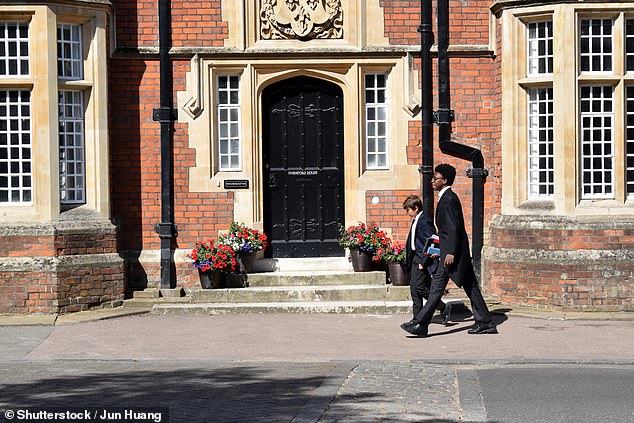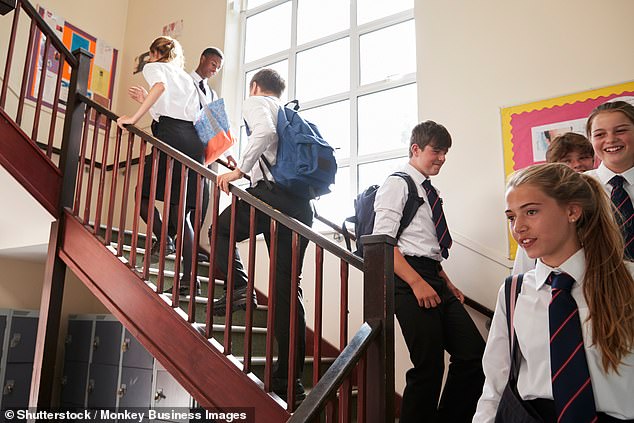Table of Contents
I have questions about Labour’s policy of charging VAT on private school fees.
First of all, what is the legal situation? I understood that VAT could not be applied to education or the provision of educational services.
I believe this divisive policy will widen the gap between the haves and the have-nots.
If implemented, would the government allow those who qualify (parents who do not have six-figure salaries) to pay their school fees through tax-free nurseries?
Private schools: charging 20% VAT on fees is one of the key Labour Party policies
Finally, I understand that the Labour Party will be enacting a policy whereby it will be able to retrospectively charge VAT on any school fees paid from the date the policy is enacted, which will give it time to put in place a framework around the charging of VAT and to recover the retrospective VAT.
Is this the case? If so, what is the likelihood that the challenge will be successful?
SCROLL DOWN TO FIND OUT HOW TO ASK HEATHER HIS TAX QUESTION
Heather Rogers responds: The imposition of a 20 per cent VAT on private school fees was much discussed during the election as one of the key policies of the Labour Party.
Having been included in the King’s Speech, we can be fairly certain that this policy will feature in Chancellor Rachel Reeves’ first Budget, due to be tabled on 30 October 2024.
Here I will give you an overview of the Labour Party’s plans before moving on to your specific questions.
First, let’s look at the definition of a private school, as it will be relevant.
A private school, also known as an independent school, is a school that charges tuition to pupils. They do not currently have to teach the national curriculum, but they must be inspected.
About half of independent schools have charitable status and about half do not.
Some of these schools specialise in teaching children with special educational needs and disabilities, known as SEND.
Sometimes local authorities will fund children who have education, health and care (EHC) plans to attend these special independent schools.
What are Labour’s plans for private school fees?
Labour plans to scrap the current VAT exemption and also business tax relief for private schools, which would raise around £1.5bn a year.
This money will be used to hire 6,500 new teachers, train them, offer work experience and career advice to young people, among many other educational projects.
As noted above, most of these schemes are funded by local authorities, but the VAT changes will not affect those children whose needs can only be met by a private school.
The Chancellor is allowing local authorities to recover VAT where they pay; if a parent does not receive local authority funding then it is less clear what the situation is.
How will the removal of the VAT exemption work?
Independent schools, whether or not they have charitable status, are currently exempt from charging VAT, if they are considered “eligible bodies”.
In addition to education expenses, expenses for related services such as accommodation, travel and food are currently also exempt.
In the future, VAT will be applied to tuition and accommodation costs.
It will not apply to nurseries, full-time nurseries (before and after school), school meals, holiday clubs and part-time classes (music, drama, etc.).
The legislation is currently set out in EC Directive 2006/112/EC and is implemented in the UK under the VAT Act 1994 (known as VATA 1994), which was retained after Brexit.
Heather Rogers Answers Your Tax Questions

The changes will require careful drafting.
The VAT charge will apply to both UK and overseas students and will apply throughout the UK.
Will changes be made retroactively? Can school fees be paid in advance to avoid VAT?
You asked whether Labour will try to retrospectively charge VAT on school fees.
Chancellor Rachel Reeves has confirmed that the VAT exemption will not be applied retrospectively
However, there has been much debate about whether parents should pay fees in advance for subsequent school years, before any changes to VAT legislation, and thus avoid the charge; this is known as ‘front-loading’.
Unfortunately it is not that simple and here is why.
Labour had said the VAT charge would apply from 1 January 2025, but would affect advance payments made from 29 July 2024.
This would mean that VAT can be recovered on any fees paid from now on for school terms starting on or after 1 January 2025.
The Chancellor has stated that advance payments of fees for periods commencing on or after 1 January and made on or after 29 July 2024 will be subject to VAT.
Anti-casualisation legislation has been used before. It was introduced by George Osborne when the VAT rate was raised from 17.5 per cent to 20 per cent in 2011.
It was also used when changes were made to VAT rates and certain loopholes were closed in 2012, including the infamous empanada tax, which was eventually scrapped.

A source of revenue: Labour plans to use the estimated £1.5bn of annual revenue from VAT on school fees to recruit and train more teachers in the public sector and provide work experience.
Will there be legal challenges?
You asked me whether the removal of the VAT exemption would be legally justified. I am not a lawyer, but it is quite possible that there will be various problems depending on the legislation that is approved.
Part of the reason I believe a retroactive VAT charge on fees has not been applied is due to the legal complexities involved in doing so.
Tax-free rates for private schools and nurseries
Regarding your question about Tax-free childcare, which provides up to £2,000 a year to help with childcare, this money can be used by parents to cover some types of costs, but not others.
There’s a Helpful explanation on Revenuebenefits websitewhich is a partnership between the Low Income Tax Reform Group and Rightsnet, created with the support of HMRC.
It says: ‘Tax-free child care payments are for actual child care, but there are a number of situations where child care fees also include other items.
‘Where childcare is provided by a private school attended by the child, tax-free childcare services can be used to pay for those costs if:
– Relate to a child who is not of compulsory school age, or
– Do not include any elements of compulsory education, or
– They are for childcare provided outside of school hours.
‘If the costs are partly for qualifying childcare and partly for compulsory education, only the part relating to qualifying childcare can be paid using the tax-free childcare account.’
Will private schools have to pass on the full VAT to parents?
Currently, schools are exempt, meaning they are not registered for VAT.
They don’t pay VAT but they don’t claim it either.
The Institute for Fiscal Studies expects the average net VAT payable to be around 15 percent, due to the possibility of offsetting input tax on purchases.
In addition, some schools may be able to reduce the bill by recovering VAT under the capital goods scheme, or on capital expenditure that does not qualify under the capital goods scheme.
If you are a charity, you will still be required to register for VAT if you exceed the VAT registration threshold, but you will still receive beneficial tax treatment as a charity (Labour will not remove your charity status).
Many schools, like most businesses dealing with the public, will no doubt also absorb a proportion of the VAT to avoid a price increase of effectively 20 per cent.
What can parents concerned about paying VAT on school fees do now?
If you have already paid, you are probably fine, but VAT applies to payments made after July 29th (inclusive).
In addition, the business rate reduction will be phased out from April 2025 and even those schools that are charities will not be able to claim the charitable reduction.
Some links in this article may be affiliate links. If you click on them we may earn a small commission. This helps us fund This Is Money and keep it free to use. We do not write articles to promote products. We do not allow any commercial relationships to affect our editorial independence.





